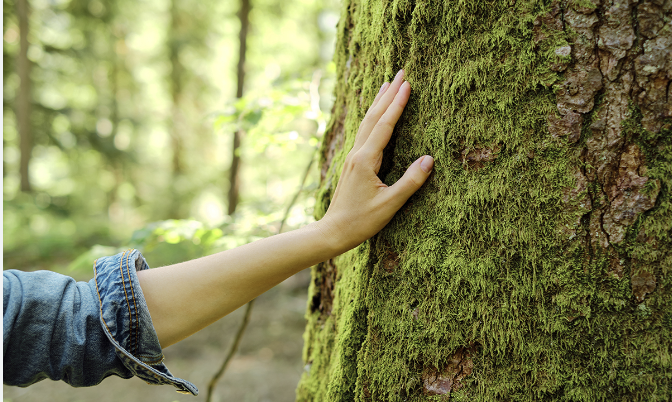
- Details
- By Chuck Hoskin Jr
Guest Opinion. Since time immemorial, Cherokees have understood that we must treat the land, water, air, and all living creatures that share these resources with great respect. Protecting our precious natural resources is deeply personal for myself and Cherokee Nation First Lady January Hoskin.
With climate change an increasing threat that we’re already feeling the effects of, it has become even more clear that we cannot take our natural environment for granted. As Earth Day 2024 approaches, I want to recognize how Cherokee Nation is working to protect our environment for the next seven generations.
I recently signed an executive order that takes significant steps to curb single-use plastics in our tribal government. We know that single-use plastics poison our natural environment and that current recycling measures worldwide are not working. We, as Cherokees, can be part of the solution.

Actions include the immediate elimination of the tribe's Cherokee-branded plastic water bottles, replacing them with more sustainable aluminum alternatives. Effective by October of this year, we’ll ban the purchase of single-use plastics using tribal funds for internal and event uses. Over the coming year, we will integrate even more sustainable options — aluminum or cardboard water bottles — across all our business operations.
We are also establishing the Cherokee Nation Youth Climate Change and Environmental Protection Task Force. Five Cherokee youth named to this task force will work to engage the community, conduct surveys and set an example as youth leaders taking on serious issues. The youth task force embodies the Hoskin-Warner administration's commitment to develop the next generation of leaders.
In addition to empowering Cherokee youth, we plan to assemble a professional task force of in-house experts across Cherokee Nation departments. The panel — led by Secretary of Natural Resources Christina Justice — will study our unique environmental challenges and recommend ambitious solutions.
Cherokee Nation will use grant funding from the Bureau of Indian Affairs and the U.S. Department of Energy to conduct energy audits of tribal facilities, identify where we can reduce carbon emissions, and strategically plan for further improvements.
We are building on past environmental protection efforts. One of those cornerstones is the adoption of electric vehicles and electric charging stations within our 7,000-square-mile reservation. This proactive infrastructure-building helps reduce fossil fuels usage and improve air quality. Cherokee Nation has embraced solar power as well. Many of our community buildings are equipped with solar panels to generate clean electricity and save on utility bills.
At the state level, we are advocating against HB 4118, which would remove important protections against water pollution by poultry waste. While Cherokee Nation supports local farmers, who are vital to our community and economy, we will stand against any bill that endangers our water and removes accountability for polluters.
Cherokee Nation is leading by example to foster a sustainable future, both locally and globally, for generations to come. Every day presents an opportunity to honor and protect our planet, not just through grand gestures but through daily actions. By combining science, service, and sustainability, we are poised to make even more positive change. On Earth Day and every day, we remember gratitude and careful stewardship for this planet we all share.
Chuck Hoskin, Jr. is the principal chief of the Cherokee Nation.
More Stories Like This
Tribes Do Not Need a Greenlight to Build Renewable EnergyLaw Should Not Get in the Way When "Manifest-ing Destiny"
Celebrating 35 Years of Gaming Success
My Tribe’s ICE Contract Betrayed Our Values
Extending the Affordable Care Act Is a Moral Imperative for Indian Country
Help us defend tribal sovereignty.
At Native News Online, our mission is rooted in telling the stories that strengthen sovereignty and uplift Indigenous voices — not just at year’s end, but every single day.
Because of your generosity last year, we were able to keep our reporters on the ground in tribal communities, at national gatherings and in the halls of Congress — covering the issues that matter most to Indian Country: sovereignty, culture, education, health and economic opportunity.
That support sustained us through a tough year in 2025. Now, as we look to the year ahead, we need your help right now to ensure warrior journalism remains strong — reporting that defends tribal sovereignty, amplifies Native truth, and holds power accountable.
 The stakes couldn't be higher. Your support keeps Native voices heard, Native stories told and Native sovereignty defended.
The stakes couldn't be higher. Your support keeps Native voices heard, Native stories told and Native sovereignty defended.
Stand with Warrior Journalism today.
Levi Rickert (Potawatomi), Editor & Publisher

